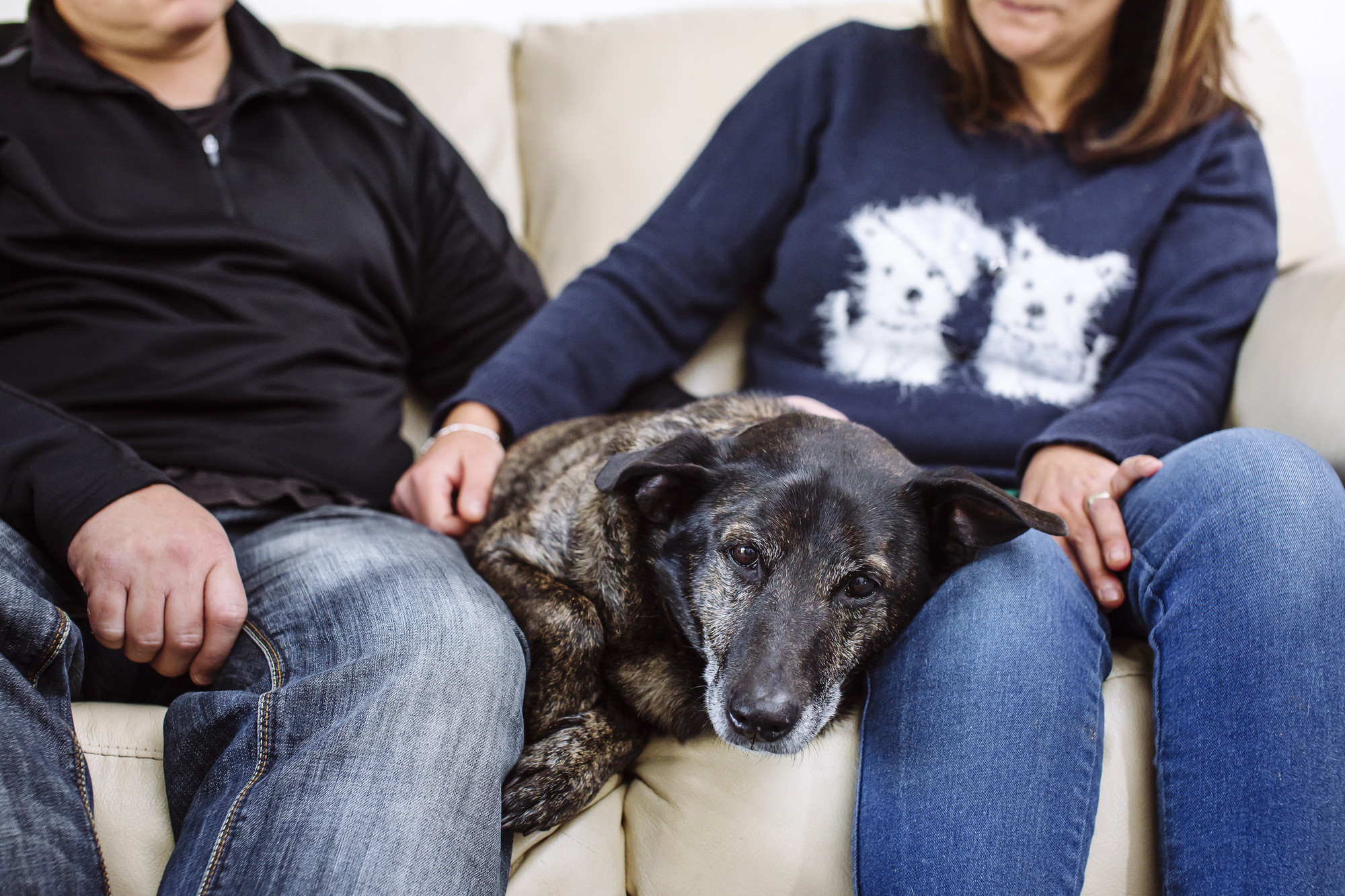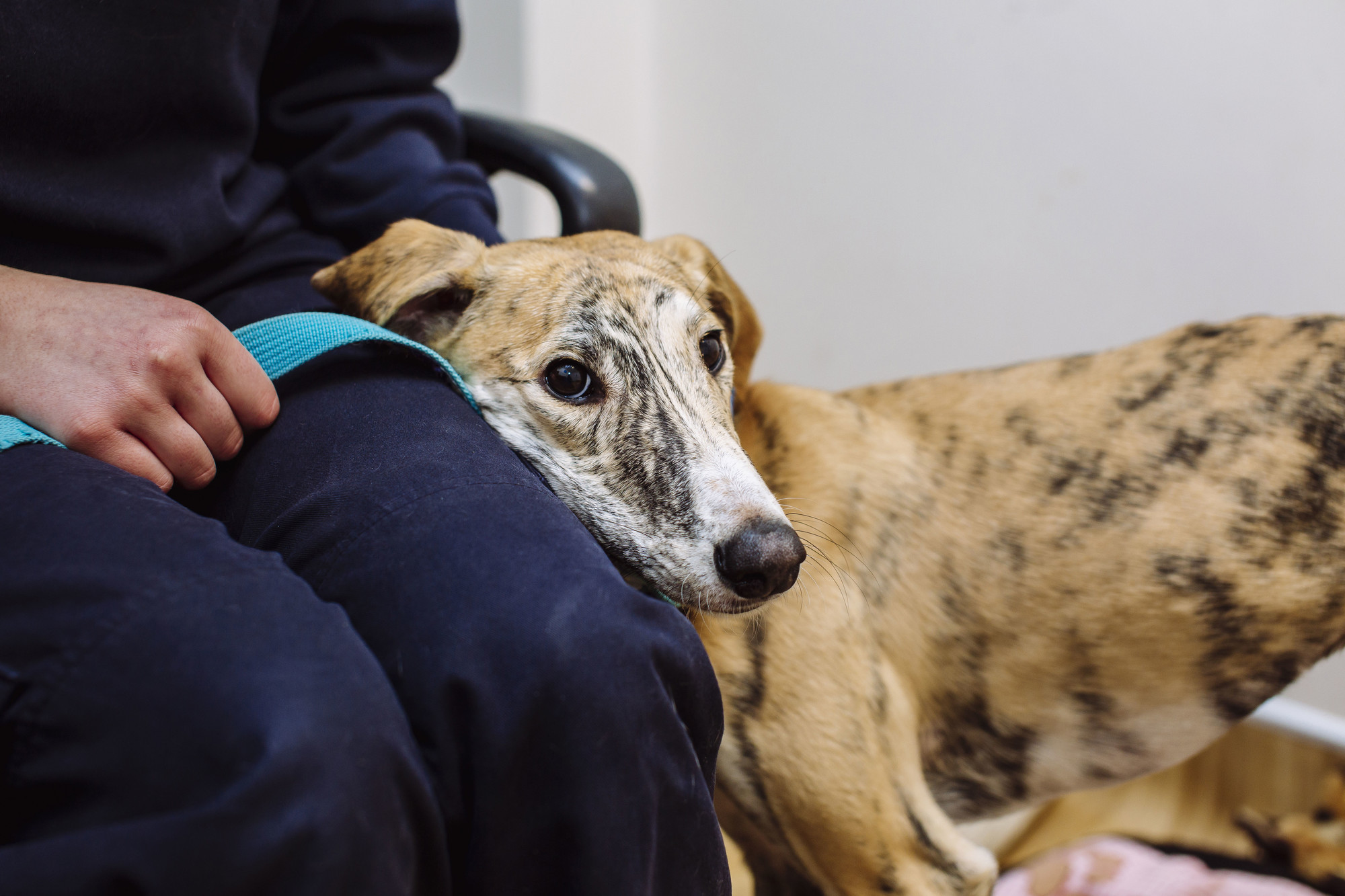
How to deal with a breakup as a pet owner
Experiencing a relationship breakdown is usually a stressful time for all parties involved. It can be made even more upsetting when considering what to do about ownership of your pet.
Many of us think of our pet as one of the family and the thought of losing them, as well as dealing with the emotional turmoil of a breakup, can at times feel too much.
Sadly 10 per cent of people said they had lost a pet during a breakup with a partner, with more than 5 per cent saying they had had to work out visiting hours with an ex.
However, there are a few things that you can think about in order to make the transition for your pet an easier one.
How pet ownership is legally decided
While pet owners will disagree, in the UK pets are considered property from a legal standpoint.
If a decision can’t be mutually reached on custody of your pet and you don’t have proof of ownership in your name, a court could decide on legal ownership and the return of the animal. However, a court won’t have the power to order the legal owner to give access to the dog to the non-legal owner.
A court may take into consideration the following:
- who bought the dog
- who the key provider is
- whose name is registered on the dog’s microchip and insurance
- who is registered with the vet
Pet custody in divorce and separation
The best solution is to settle pet custody outside of court, and to come to a mutual decision together.
These can be hard conversations to have but, if you can, sit down with your partner and discuss what the arrangements for your pet’s future should be, and whether the decision you have made will be the best for them.
The best decision will depend on what pet you have. For instance, if you have a dog and are considering sharing custody, you should consider what schedule will work best for your pet. They should have a key carer who has both the time and money to be able to care for them on their own.
This is slightly different for cats, as they become more attached to their environment and are better off staying with the partner – if there is one – who is remaining in the same house. If neither of you are staying in the same place, then you can discuss who is in the best position to keep the cat, bearing in mind things like money, time and location (i.e. is it away from a busy main road?).
Note
If you are discussing some form of shared custody, be sure that your training remains consistent – if your pet is allowed on the sofa in your house and not in the other’s they will soon become confused about what they are allowed to do.
Who gets custody when there are two pets?
If you have two pets, you will need to think about their relationship with each other. If you have two pets that are attached then, while it may seem like the fair decision to have one pet each, this may not be the best decision for them.
However, if your pets are not particularly fond of each other, or seem more content when they are on their own, then splitting them up may be the right option for everyone involved.
How will my pet react to the change in circumstance?
It’s important to remember that your pet can easily sense changes in their environment. This means that if there is tension in the home or arguing, they can pick up on this and this may cause behaviour changes.
If you can, try to keep arguing and emotional discussions to a minimum around your pet.
Be sure to carefully monitor your pet for any changes in behaviour or appetite - this can be an indication that your pet is feeling anxious or stressed. A hormone diffuser such as Feliway or Adaptil can help keep your pet calm during what can be a stressful period of time.

Moving day for your pet
The days leading up to and immediately after your move can be stressful for everyone in the household, including your pet. All your pet has known and become familiar with, in terms of household objects and smells, changes dramatically and it is not surprising that some pets become stressed when moving house, with dogs and cats being most affected.
You may wish to consider placing your pet in a boarding kennel or a family/friends home for the duration of the move, which has the advantage of keeping them safe and stress-free while allowing you to attend to the details of the move. Once safely settled into your new home, with everything unpacked, collect your pet and dedicate the time needed to settle them into the new environment.
Settling your pet into a new home
When settling into your new home, remember that this will be a big change for your pet, so try to keep as much of the same routine as you can. If your pet has a specific time that they usually eat then try to keep this the same. Place familiar bedding and toys around your new home so that they are surrounded by familiar smells and, if you have a dog, try to walk them around the same time that you would usually.
For dogs, it’s a good idea to slowly reintroduce them to being left on their own in your new home. With all the changes in their environment, they may find it hard to adjust in the beginning. Given time and patience, they will get back into their usual routine.
The important/legal bits
There are things that you will need to consider from a legal perspective if you are moving with your dog.
- You will need to update your dog’s pet tag/ID tag to include your full name and new address. It is also recommended that you include your number, though this isn’t a legal requirement.
- Be sure to update your dog’s microchip details with your new address – remember that this is now compulsory for all dog owners
Saying goodbye to your pet
Parting with a pet can be a sad and difficult experience. Pets can help us in so many ways, from calming and supporting us, to comforting us and making us smile and laugh. They really are part of the family.
However, for those couples who have had to go through a breakup it can be a double blow to face the devastation of not only losing a partner but a much loved pet.
Sometimes it helps to share feelings of loss with someone who will listen with compassion and without judgement, and Pet Loss Support can help you through this difficult time. Find out more about how our Pet Loss Support service can support you through separating from your pet.




